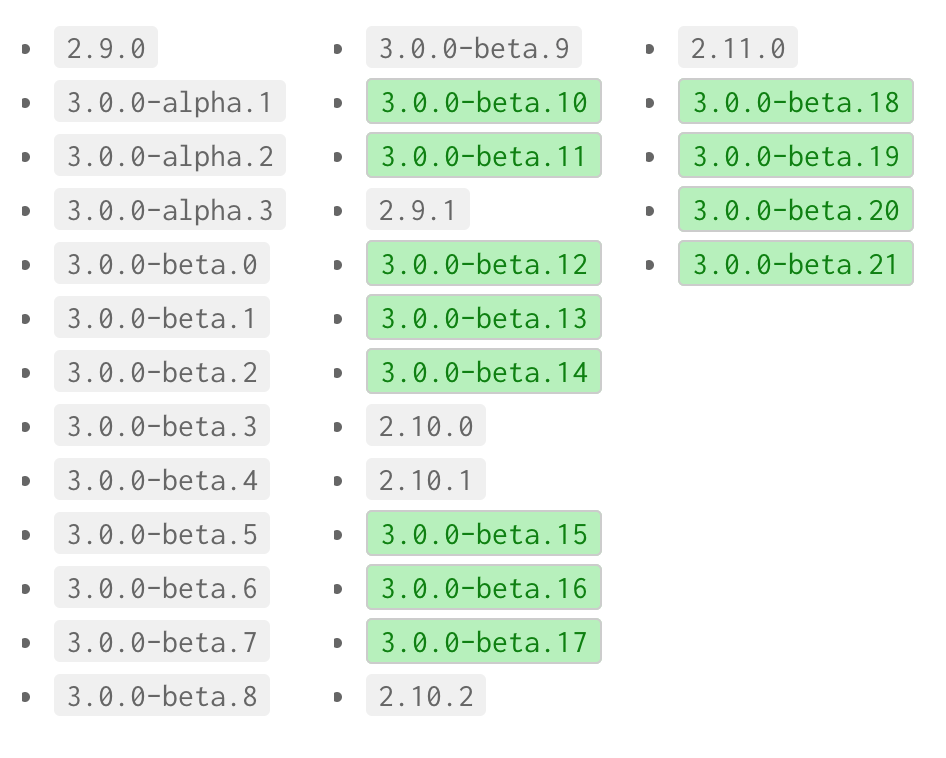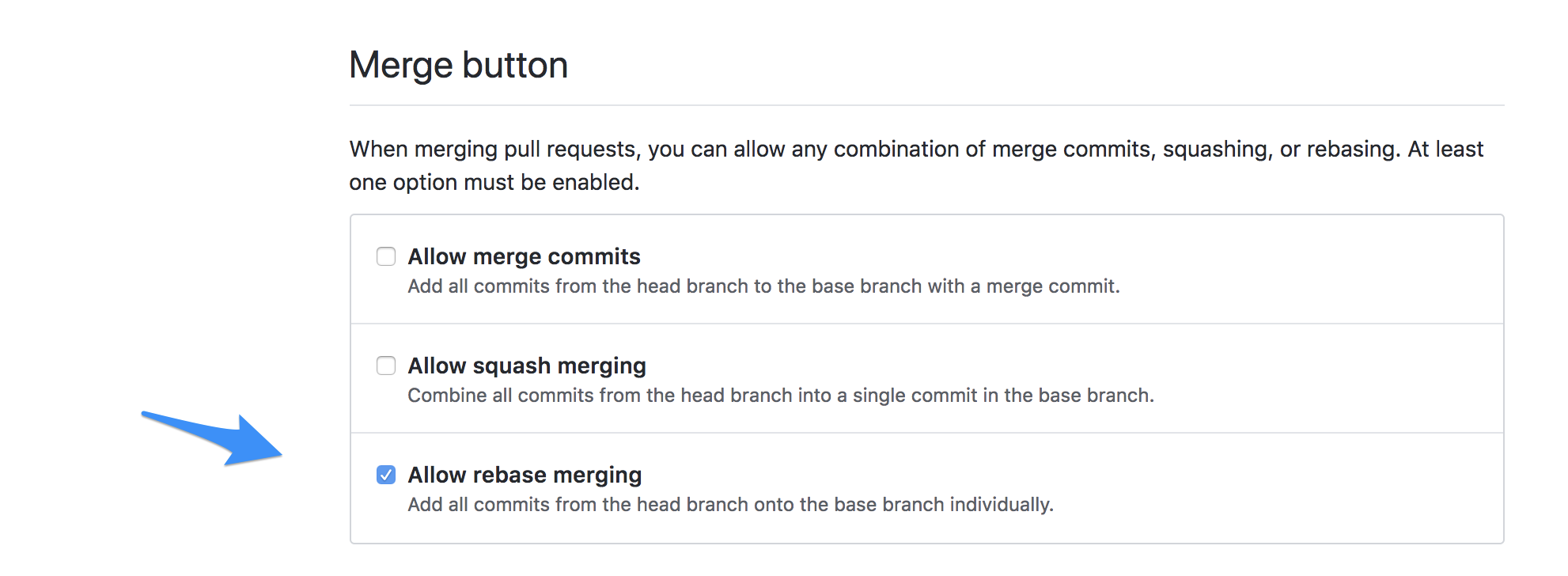-
Notifications
You must be signed in to change notification settings - Fork 2.2k
New issue
Have a question about this project? Sign up for a free GitHub account to open an issue and contact its maintainers and the community.
By clicking “Sign up for GitHub”, you agree to our terms of service and privacy statement. We’ll occasionally send you account related emails.
Already on GitHub? Sign in to your account
feat: Split lerna version from of lerna publish
#1522
feat: Split lerna version from of lerna publish
#1522
Conversation
* share composed options more cleanly with publish + changed * add version lib mocks to unblock non-canary publish tests * handle early return from version command * Use inline snapshots for canary tests, adding sequential cases * integration/publish: remove --skip-git, --skip-npm, --cd-version flags * integration/publish: pass --dry-run via env var
362a9e4
to
915291e
Compare
… it again in needsBump()
BREAKING CHANGE: The previous default for `--preid` was undefined, which led to an awkward "1.0.1-0" result. It will now default to "alpha", which yields a more useful "1.0.1-alpha.0" result. Any previous prerelease ID will be preserved, just as it was before.
| - package-5: 1.0.0 => 1.1.0-alpha.SHA (private) | ||
|
|
||
| Successfully published: | ||
| - package-1@1.0.1-alpha.0+SHA |
There was a problem hiding this comment.
Choose a reason for hiding this comment
The reason will be displayed to describe this comment to others. Learn more.
Out of curiosity what's the benefit of -alpha.0+SHA vs -alpha+SHA
There was a problem hiding this comment.
Choose a reason for hiding this comment
The reason will be displayed to describe this comment to others. Learn more.
This solves most of #277, allowing ^ ranges of canary prereleases to evaluate correctly. Without the .0 after the prerelease id, semver attempts to parse the git SHA as a number, which leads to very erratic behavior as SHAs are not guaranteed to start with a number, etc.
https://semver.npmjs.com/ is a good playground to demonstrate this. Try it with lerna at range ^3.0.0-beta.10, and you'll notice 3.0.0-beta.9 isn't highlighted:

Semver ignores anything after the +, hence stashing the SHA there. It's meant to dedupe the tarball when attempting to upload, since there might be multiple foo-pkg@1.0.1-beta.4 (with different +SHA values) published. (This is why it's a good idea to use --exact with --canary when you're dealing with contentious feature branch publishes)
|
@evocateur I salute you this looks so promising. I am curious about the bit of documentation that strongly discourages running (This part added later) Actually, I think your documentation is sufficient I just had to read it a couple times. Do think doing this in GitHub on my monorepo would remove the concern? |
|
@morgs32 My biggest concern with making tagged releases in feature branches is that the tags get mangled when merging. I'm not sure if rebase merge would be any safer, since if it was rebasing onto upstream commits, the SHAs would change and thus the annotated tag(s) would be "broken", as the SHA it points to no longer exists. However, I haven't tried rebase merge in a long time, and I don't recall if One of my goals in the near future is to improve the "auto-publish from CI" experience, perhaps with a subcommand So please let me know if |
| ```json | ||
| { | ||
| "command": { | ||
| "publish": { |
There was a problem hiding this comment.
Choose a reason for hiding this comment
The reason will be displayed to describe this comment to others. Learn more.
Is this correct @evocateur ? Do you configure lerna version by configuring publish on lerna.json ? Seems confusing
|
It's for backward-compatibility. The `lerna version` docs probably should be updated to use the correct namespace, though.
… On Aug 12, 2018, at 05:11, Daniel Rodríguez Rivero ***@***.***> wrote:
Do you configure lerna version by configuring publish on lerna.json ? Seems confusing
|
BREAKING CHANGE: * `--preid` now defaults to "alpha" during prereleases: The previous default for this option was undefined, which led to an awkward "1.0.1-0" result when passed to `semver.inc()`. The new default "alpha" yields a much more useful "1.0.1-alpha.0" result. Any previous prerelease ID will be preserved, just as it was before. * `--no-verify` is no longer passed to `git commit` by default, but controlled by the new `--commit-hooks` option: The previous behavior was too overzealous, and the new option operates exactly like the corresponding [npm version](https://docs.npmjs.com/cli/version#commit-hooks) option of the same name. As long as your pre-commit hooks are properly scoped to ignore changes in package.json files, this change should not affect you. If that is not the case, you may pass `--no-commit-hooks` to restore the previous behavior. Fixes lerna#277 Fixes lerna#936 Fixes lerna#956 Fixes lerna#961 Fixes lerna#1056 Fixes lerna#1118 Fixes lerna#1385 Fixes lerna#1483 Fixes lerna#1494
|
This thread has been automatically locked because there has not been any recent activity after it was closed. Please open a new issue for related bugs. |

Description
To facilitate further refactoring, the gigantic PublishCommand needs to be split in two. Several flags were deprecated and replaced with clearer options, but remarkably only two technically breaking changes resulted from ~2 weeks of work.
BREAKING CHANGE:
--preidnow defaults to "alpha" during prereleases:The previous default for this option was undefined, which led to an awkward "1.0.1-0" result when passed to
semver.inc().The new default "alpha" yields a much more useful "1.0.1-alpha.0" result. Any previous prerelease ID will be preserved, just as it was before.
--no-verifyis no longer passed togit commitby default, but controlled by the new--commit-hooksoption:The previous behavior was too overzealous, and the new option operates exactly like the corresponding npm version option of the same name.
As long as your pre-commit hooks are properly scoped to ignore changes in package.json files, this change should not affect you. If that is not the case, you may pass
--no-commit-hooksto restore the previous behavior.Motivation and Context
Fixes #277
Fixes #936
Fixes #956
Fixes #961
Fixes #1056
Fixes #1118
Fixes #1385
Fixes #1483
Fixes #1494
This PR lays the groundwork for #1091 (and #1513) by making
lerna publishonly directly worrying about publish itself, not all those other complicated versioning decisions.How Has This Been Tested?
Ported unit tests, with "full-bleed" integration tests of
npm publishthanks to the new--dry-runflag in npm@6.Types of changes
Checklist: